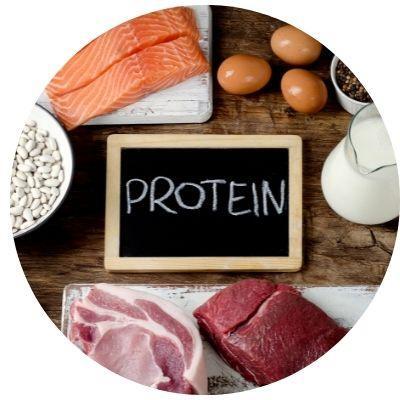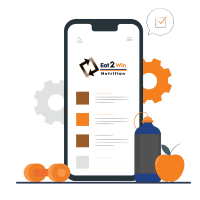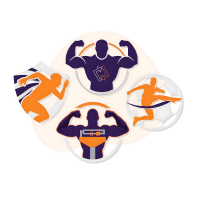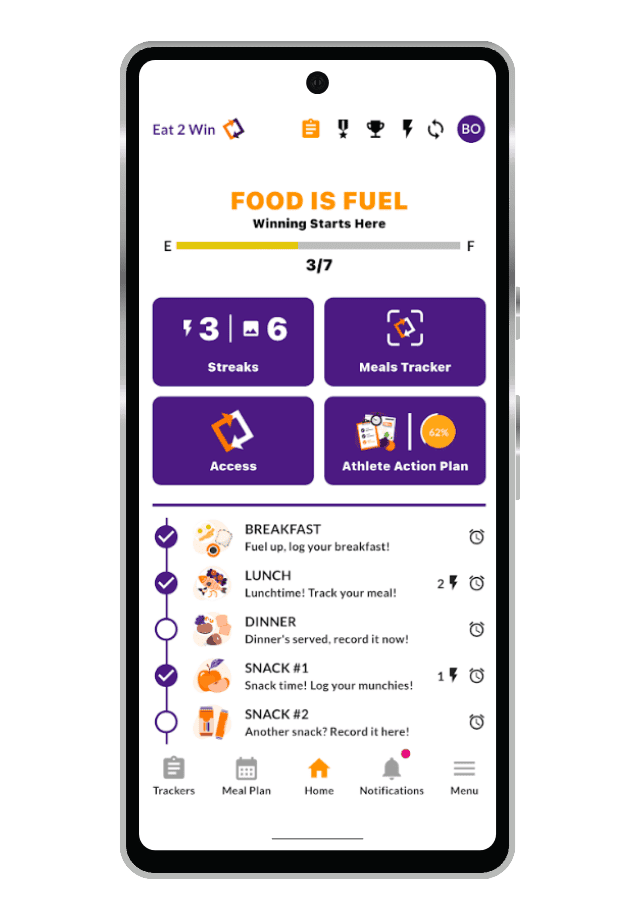
Protein, Protein, Protein…
What is the recommended protein intake for athletes to get bigger, faster, and stronger? There’s a large misconception about the function of protein and how much athletes actually need.This is due largely to advertisements and media making false claims that athletes need protein in abundance. Learn the importance of calculating protein needs and common protein foods that can support muscle tissues to growth, development, and recovery.
Listen to the DEEP DIVE
- Protein Intake for Athletes_ Fueling Performance and Recovery.wav00:00
Functions of Protein
- Repairs and regenerates damaged and disrupted muscle tissue (i.e. post workout)
- Improves immune function
- Involved in muscle contraction
- Increase anabolic hormones (i.e. Insulin) to assist with muscle growth and recovery
How much Protein do I need?
It Depends on:
- Frequency and Intensity of Your Strength Training
- Weight and Muscle Mass of the Athlete
Great Sources of Protein
The best way to cook meat is by grilling, baking, or broiling, as this reduces the added fat content.
- Beef:
Lean Ground Beef, Sirloin, Filet, Flank, Eye of Round, Beef Tenderloin, T-Bone, Lean Beef Jerky - Chicken/ Turkey:
Chicken/Turkey Breast (no skin), Lean Ground Chicken or Turkey - Fish:
All fish that has not been fried - Pork:
Lean Ham (Deli meat), Center cut Pork Chop or Pork Tenderloin Center Cut Bacon - Game:
Bison, Venison, Duck Breast - Low Fat Dairy:
Reduced Fat milk, Low Fat Cottage Cheese, Low Fat Cheese, Low Sugar Yogurt - Non Meat Sources:
Eggs, Tofu, Tempeh, Nuts, Rice & Beans, Protein Powder
It is best to spread your protein out throughout the day. Focus on 5-6 smaller meals with a good source of protein at each meal and snack. An easy guideline to follow is to eat a meal or snack every 3-4 hours.
Each ounce of meat equals about 7 grams of protein so a 5-6 ounce chicken breast will have 35-42 ounces of protein.
Protein Needs by Gender
Although these are helpful guidelines, these ranges are not intended for every athlete.
- Female athletes - 20-30 grams of protein for main meals and 10-15 grams at snacks
- Male athletes - 30-40 grams of protein for main meals and 15-20 grams at snacks
Post Workout Protein Needs
There’s no need to overspend on very high protein drinks post workout as the research has demonstrated 25-40 grams of protein post workout is adequate to maximize muscle protein synthesis and facilitate muscle recovery. Combining protein with carbohydrate enhances protein uptake into the muscle while also restoring your gas tank (i.e. Glycogen). Focus on a 3:1 or 4:1 Carbohydrate to Protein ratio post exercise. As a general guideline, a food first approach is always best. If you have access to a fresh cooked meal postworkout, this is optimal. Some examples would include
- 4 oz chicken breast, 1 cup rice, 1 medium piece of fruit
- 1 scoop whey protein, 2 pieces of fruit, 1 cup milk
- Peanut Butter and Jelly Sandwich, Glass of Milk, Fruit
- 2 cups of Milk, Banana
The options mentioned above are examples and do not reflect the calorie needs of every type of athlete. Calorie needs will differ by sport and activity as well as height, weight, and body weight goals of athletes.
Eat 2 Win Nutrition App
Fuel the Champion Within

Trackers
Stay on target with cutting-edge trackers that monitor every step of your journey, ensuring you never miss a beat.

Meal Plan Guides
Simplify your nutrition with easy-to-follow, personalized meal plans that fuel your performance.

Gamification
Stay motivated and engaged by earning rewards and climbing leaderboards as you hit your fitness and nutrition goals.

Access a Sports Dietitian
Get expert guidance and personalized support from a certified Sports Dietitian whenever you need it.

Personalized Programs
Unlock your full potential with personalized programs meticulously crafted to match your unique lifestyle and fitness aspirations.



